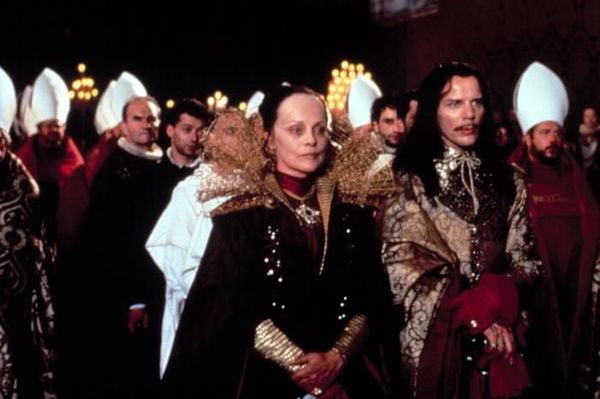Eye For Film >> Movies >> Queen Margot (1994) Film Review
Queen Margot
Reviewed by: Angus Wolfe Murray

It takes passion to realise passion. Theatre/opera/film director Patrice Chereau spent two years with Daniele Thompson preparing the script for La Reine Margot from the novel by Alexandre Dumas. Afterwards he had to persuade Claude Berri to produce a work of such magnitude and expense, as well as convince the mercurial Isabelle Adjani to play Charles IX's 19-year-old sister.
Chereau nurtured the belief in a realistic interpretation of 16th century political machinations, tearing the heart out of historical romance, leaving the corpse of costume drama in its own pretty blood. This is a film that enters the dark soul with fury and conviction. Even love is stained with death.

Margot's arranged marriage to Henri of Navarre (Daniel Auteuil)) is an attempt by her mother, Catherine of Medici (Virna Lisi), to end the Wars of Religion that have cut France to the quick. It fails. Six days after the wedding at Notre Dame 6000 Protestants are butchered in the Saint Bartholomew's Day massacre. Charles (Jean-Hugues Anglade) wavers between the anguish of responsibility and the recognition of his mother's influence in a court, poisoned by intrigue. No one is safe. Plots thrive in an atmosphere of aggression and danger. Margot's hunger for adventure is satiated by her spirit of independence and served by a pride of virile lovers.
To survive requires courage. Sentiment has no place here. Ideals of justice, fairness and humility are wasted. Rage and fear suffocate softer feelings, although the desire for trust is potent amongst friends. When Margot saves the life of the Protestant nobleman, La Mole (Vincent Perez), it is as much for his beauty as anything else and when she loves him, when she discovers that the act of giving is closer to heaven than "a man to arouse your body and put your memory to sleep," she is vulnerable, like a bird out of its cage.
Not since Eisenstein's imaginative expressionism has a film ravaged tradition and brought the past into focus with such devastating energy.
Chereau's camera runs like a bull through the streets of this tragedy and the actors respond with untheatrical naturalism. Auteuil is too old for the teenage Henri, but his ability to evoke the complexity of terror is admirable. Anglade swithers between weakness and self-conscious gallantry, while Lisi is the epitome of malevolent power. Perez conveys a fierce commitment, which matches Adjani's incomparable sensuality at the centre of what will become, or is already, a magnificent example of cinema's creative gift.
Reviewed on: 19 Nov 2006
















